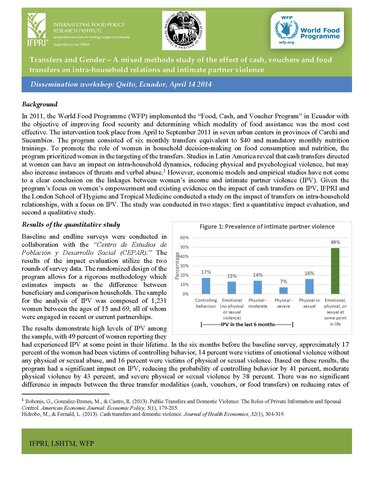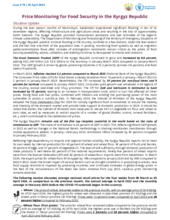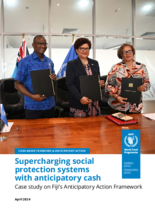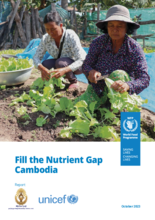
In 2011, the World Food Programme (WFP) implemented the “Food, Cash, and Voucher Program” in Ecuador to improve food security and also to determine which modality of food assistance was the most cost effective, for the local context, cash, vouchers, or food rations. To promote the role of women in household decision-making on food consumption and nutrition, the program prioritized women in the targeting of the transfers.
Studies in Latin America reveal that cash transfers directed at women can have an impact on intra-household dynamics, reducing physical and psychological violence, but may also increase instances of threats and verbal abuse. However, economic models and empirical studies have not come to a clear conclusion on the linkages between women’s income and intimate partner violence (IPV). Given the program’s focus on women’s empowerment and existing evidence on the impact of cash transfers on IPV, IFPRI and the London School of Hygiene and Tropical Medicine conducted a study on the impact of transfers on intra-household relationships during the WFP program, with a focus on IPV.
Among the conclusions, the study states the high prevalence of IPV in the sample. Participation in the program decreased different types of IPV, including controlling behavior, moderate physical violence, and severe physical or sexual violence by 38 to 43 percent, regardless of transfer modality (cash, vouchers, or food).
The transfers appeared to improve women's capacity to make decisions about food consumption and household nutrition, which in turn affected women's self-perception as heads of their households. Finally, framing the transfers as a program to improve nutrition might have reduced the possibility of violent reactions by men to increases in women's empowerment.



